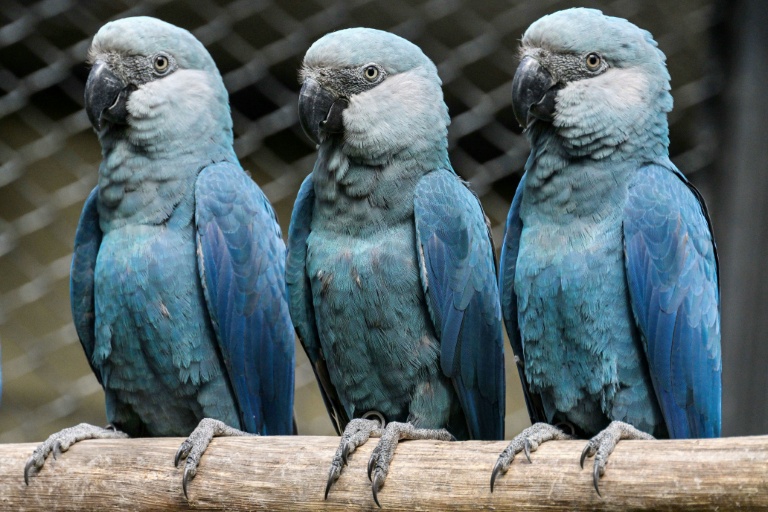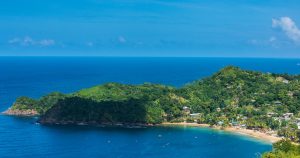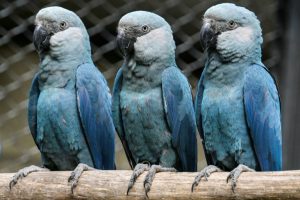Lethal virus hits last rare blue macaws in Brazil wild

Spix’s macaws live mostly in captivity, with 27 housed at the Sao Paulo zoo – Copyright AFP Nelson ALMEIDA
The only wild specimens of a rare blue parrot, which were recently returned to their natural habitat, have been diagnosed with an incurable, likely lethal virus, Brazil’s government told AFP Thursday.
The disease strikes a major blow to a program seeking to return the Spix’s macaw — featured in the 2011 animated film “Rio” — to its semi-arid natural habitat in northeast Brazil, 25 years after they were declared extinct in the wild.
Brazil’s conservation agency, ICMBio, told AFP that since a first group of Spix’s macaws arrived in the country from Germany in 2020, around 20 had been freed, only 11 of which had survived.
All of the survivors have tested positive for circovirus, which causes beak and feather disease in parrots but poses no danger to humans.
“The disease has no cure and kills the bird in most cases,” ICMbio said in a statement.
Another 21 birds of around 90 still in captivity at a breeding center in the state of Bahia also tested positive.
The film “Rio” is about a Spix macaw that is raised in captivity in the United States and returns to Brazil to try to save its species.
Real-life efforts to save the parrot are more worthy of a high-stakes drama, marked by institutional conflict, concerns over unscrupulous breeders and sales to private collectors.
The BlueSky breeding center is a partner of the German Association for the Conservation of Threatened Parrots (ACTP), which holds 75 percent of the world’s registered Spix’s macaws, according to ICMBio.
Brazil terminated its partnership with ATCP in 2024 after the German organization sold 26 of the birds to a private zoo in India without its consent.
Brazil has repeatedly raised concerns at meetings of CITES, the global wildlife trade regulator, over loopholes that allow for the sale of captive-bred Spix’s macaws and fuel demand for the fragile species.
Aside from habitat loss, demand from private collectors drove the extinction of the bird in the wild.
ICMBio has fined the BlueSky breeding center 1.8 million reais ($336,000) for failing to implement biosafety protocols to curb the spread of the virus.
Inspectors found “extremely dirty” bird feeders encrusted with faeces, while workers were handling the birds “wearing flip-flops, shorts and t-shirts.”
The breeding center had fiercely resisted efforts to recapture the wild Spix’s macaws, which a court ordered them to do in October.
It wrote on its website this week that parrots in South America were “more resistant” to circovirus than those elsewhere in the world.
Several had already recovered and were testing negative, according to the center.
BlueSky said it had increased sanitary measures, isolated healthy birds and built barriers to prevent contact between wild birds and captive birds.
“No birds died, all have excellent flight capacity and are feeding well.”
Lethal virus hits last rare blue macaws in Brazil wild
#Lethal #virus #hits #rare #blue #macaws #Brazil #wild






